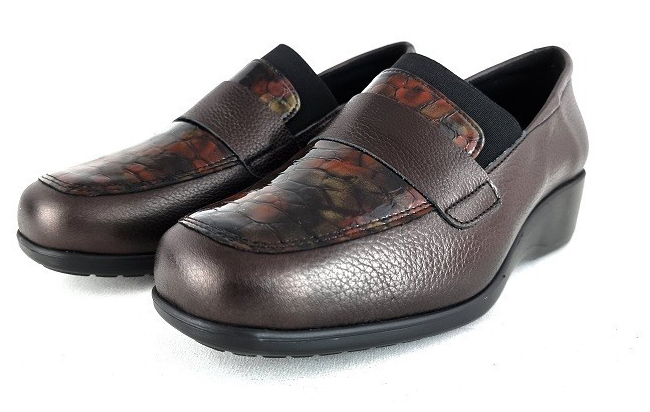
Are you considering launching your own line of private label shoes? One of the most critical steps in this journey is finding a reliable and top-quality private label shoe factory to manufacture your footwear. With numerous options available worldwide, conducting thorough research is essential to ensure you partner with a factory that meets your standards and expectations. Here’s a comprehensive guide to help you navigate this process effectively:
1. Define Your Requirements: Before diving into your search, clearly define your requirements and expectations. Consider factors such as production capacity, shoe types (casual, athletic, formal, etc.), materials, customization options, quality standards, and pricing.
2. Conduct Online Research: Start your search by leveraging online resources. Look for directories, industry forums, and trade websites specializing in footwear manufacturing. Pay attention to factory profiles, reviews, and ratings to identify potential candidates.
3. Attend Trade Shows and Exhibitions: Trade shows and exhibitions dedicated to footwear manufacturing provide excellent opportunities to meet factory representatives in person. Take advantage of these events to network, gather information, and assess the quality of their products firsthand.
4. Request Samples: Once you’ve identified a few prospective factories, request samples of their previous work. Evaluate the quality of materials, craftsmanship, and overall design. Pay attention to details such as stitching, sole construction, and finishing.
5. Verify Certifications and Compliance: Ensure that the factories you’re considering adhere to industry standards and regulations. Look for certifications such as ISO, BSCI (Business Social Compliance Initiative), and SEDEX (Supplier Ethical Data Exchange) to verify their commitment to ethical labor practices and environmental sustainability.
6. Assess Production Capabilities: Inquire about the factory’s production capacity and capabilities to ensure they can handle your anticipated order volumes. Consider factors such as lead times, production processes, and the flexibility to accommodate customization requests.
7. Check References and Reviews: Reach out to other brands or businesses that have partnered with the factory in the past. Ask for references and feedback on their experiences. Online reviews and testimonials can also provide valuable insights into the factory’s reputation and reliability.
8. Communicate Clearly: Establish open and transparent communication with the factory representatives. Clearly communicate your requirements, expectations, and any specific customization needs. A responsive and collaborative partner is crucial for a successful manufacturing relationship.
9. Visit the Factory: If feasible, consider visiting the factory in person to assess their facilities, production processes, and quality control measures. A firsthand inspection can provide valuable insights that may not be apparent through online communication alone.
10. Negotiate Terms and Contracts: Once you’ve chosen a factory, negotiate terms and finalize contracts detailing pricing, production timelines, quality standards, payment terms, and intellectual property protection.
In conclusion, thorough research is key to finding a top-quality private label shoe factory that aligns with your business goals and values. By following these steps and exercising diligence throughout the process, you can establish a successful partnership that paves the way for the production of exceptional footwear.
Remember, investing time and effort in finding the right factory upfront can ultimately save you from potential headaches and ensure the success of your private label shoe venture.
Advantages of buying Private Label shoes from factory
Buying private label shoes directly from the factory can offer several advantages:
- Cost Efficiency: By purchasing directly from the factory, you can cut out middlemen and associated markups, leading to cost savings. This can make private label shoes more affordable compared to branded alternatives.
- Customization: Working directly with the factory allows you to customize the shoes according to your preferences and specifications. This includes choosing materials, colors, designs, and even incorporating your own branding.
- Control over Quality: You have better control over the quality of the shoes as you can directly communicate your requirements and expectations to the factory. This helps in ensuring that the final product meets your standards and specifications.
- Faster Turnaround Time: Eliminating intermediaries often results in quicker turnaround times. Direct communication with the factory can streamline the production process, reducing lead times and allowing you to get your products to market faster.
- Brand Building: Private labeling allows you to build your own brand identity without the need to invest in manufacturing facilities. You can establish your brand in the market while leveraging the manufacturing expertise of the factory.
- Flexibility: Factories may offer more flexibility in terms of order quantities and production schedules, especially if you maintain a good relationship with them. This can be beneficial for small businesses or startups with varying demand.
- Potential for Higher Margins: With lower production costs and the ability to set your own pricing strategy, there is potential for higher profit margins compared to selling branded products where margins may be dictated by the brand owner.
- Market Differentiation: Private label shoes allow you to differentiate your offerings from competitors who may be selling similar products. This uniqueness can be a selling point in a crowded market.
- Direct Feedback Loop: Working closely with the factory enables you to provide direct feedback on product quality and make necessary adjustments quickly. This continuous improvement process can lead to better products over time.
- Scalability: As your business grows, you can scale production in collaboration with the factory, ensuring that they can meet your increasing demand without compromising on quality.
In conclusion, the advantages of sourcing private label shoes directly from the factory are manifold and far-reaching. By bypassing intermediaries and establishing a direct line of communication with manufacturers, businesses can unlock a plethora of benefits that contribute to their success and sustainability in the fiercely competitive footwear market.
From cost efficiency and customization opportunities to enhanced quality control and faster turnaround times, partnering with a factory for private label shoe production empowers brands to wield greater control over their product offerings and market positioning. Furthermore, the flexibility, scalability, and potential for higher profit margins afforded by this approach position businesses for long-term growth and prosperity.
Moreover, private labeling fosters brand differentiation and cultivates brand identity, enabling businesses to carve out their niche and resonate with discerning consumers seeking unique and personalized footwear options. The direct feedback loop established with manufacturers facilitates continuous improvement, ensuring that products consistently meet and exceed customer expectations.
Ultimately, by embarking on the path of private label shoe production with a reputable factory partner, businesses can unleash their creative vision, drive innovation, and establish a lasting foothold in the dynamic and ever-evolving footwear industry. This strategic approach not only optimizes operational efficiency and profitability but also lays the foundation for enduring brand loyalty and market success.
